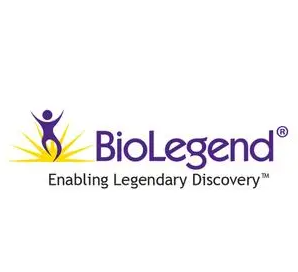BRST-2 (GCDFP-15) Monoclonal Antibody, Purified
- 产品名称:
- BRST-2 (GCDFP-15) Monoclonal Antibody, Purified
- 产品类别:
- 抗体
- 产品编号:
- 915103
- 产品应用:
- 915103
- Product Information
Intended Use:
In Vitro Diagnostic (IVD). Use in immunohistochemistry (IHC) test methods only.
The monoclonal antibody D6 is used for the in vitro examination of paraffin-embedded tissue sections of human breast carcinoma samples?using immunohistochemistry (IHC) methods for the qualitative identification of GCDFP-15. The clinical interpretation of any staining or its absence should be complemented by morphological studies and proper controls and should be evaluated within the context of the patient's clinical history and other diagnostic tests by a qualified pathologist.
- Reactivity
- Human
- Immunogen
- This antibody was generated against a gross cystic disease fluid protein 15.
- Formulation
- Phosphate-buffered solution with BSA + 0.1% NaN3.
- Preparation
- The antibody was purified by affinity chromatography.
- Storage & Handling
- Store between 2°C and 8°C.
- Recommended Usage
Each lot of this antibody is quality control tested by immunohistochemical staining of formalin-fixed paraffin-embedded breast cancer tissue sections.
The optimal working dilution should be determined for each specific assay condition.
? IHC: ≥1:40 (concentrated format) with Biotin based detection systems such as USA Ultra Streptavidin Detection (Cat. No. 929501).
Positive tissue (human): Axilla or breast carcinoma
Tissue Sections: Formalin-fixed, paraffin-embedded tissues
Pretreatment: Not required. The BRST-2 epitope is heat-sensitive; paraffin sections that have been heat fixed at 60°C may lose antibody binding sites.
Incubation: 20-60 minutes at room temperature
- Application References
(PubMed link indicates BioLegend citation) -
- Fan CY, et al. Expression of androgen receptor and prostatic specific markers in salivary duct carcinoma: an immunohistochemical analysis of 13 cases and review of the literature. Am J Surg Pathol 24(4):579-586, 2000.
- Wick MR, et al. Gross cystic disease fluid protein-15 as a marker for breast cancer: immunohistochemical analysis of 690 human neoplasms and comparison with alpha-lactalbumin. Human Path 20(3):281-287, 1989.
- Haagensen CD. Disease of the breast. 3rd ed., 250-267. W. B. Saunders Co. Philadelphia, PA, 1986.
- Mazoujian, G, et al. Extramammary paget's disease - evidence for an apocrine origin. Am J. Surg. Pathol. 8(1):43-50, 1984.
- Mazoujian G, et al. Immunohistochemistry of a breast gross cystic disease fluid protein (GCDFP-15): a marker of apocrine epthelium and breast carcinomas with apocrine features. Am J Pathol 110:105-111, 1983.
- RRID
- AB_2565163 (BioLegend Cat. No. 915103) AB_2565162 (BioLegend Cat. No. 915102) AB_2565161 (BioLegend Cat. No. 915101)
- Disclaimer
WARNINGS AND PRECAUTIONS
- Use appropriate personal protective equipment and safety practices per universal precautions when working with this reagent. Refer to the reagent safety data sheet.
- This antibody contains sodium azide. Follow federal, state and local regulations to dispose of this reagent. Sodium azide build-up in metal wastepipes may lead to explosive conditions; if disposing of reagent down wastepipes, flush with water after disposal.
- All specimens, samples and any material coming in contact with them should be considered potentially infectious and should be disposed of with proper precautions and in accordance with federal, state and local regulations.
- Do not use this reagent beyond the expiration date stated on the label.
- Do not use this reagent if it appears cloudy or if there is any change in the appearance of the reagent as these may be indication of possible deterioration.
